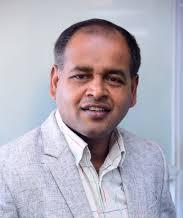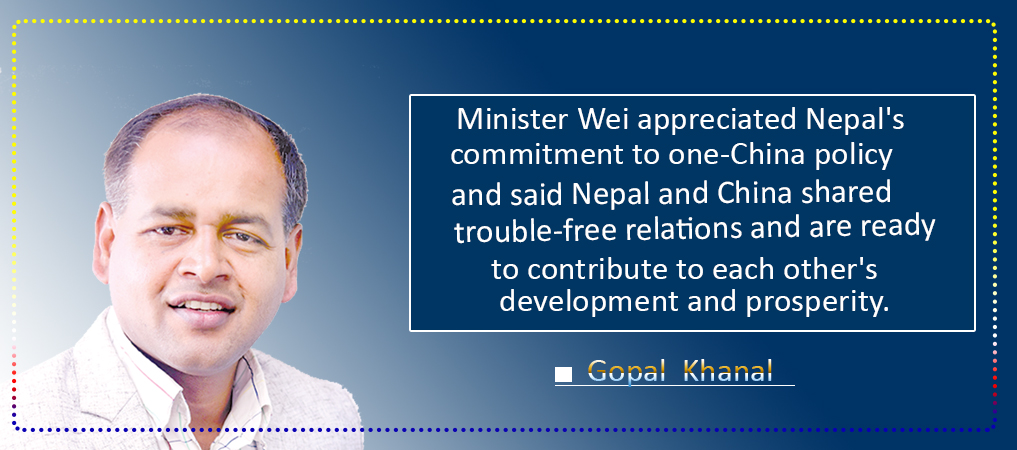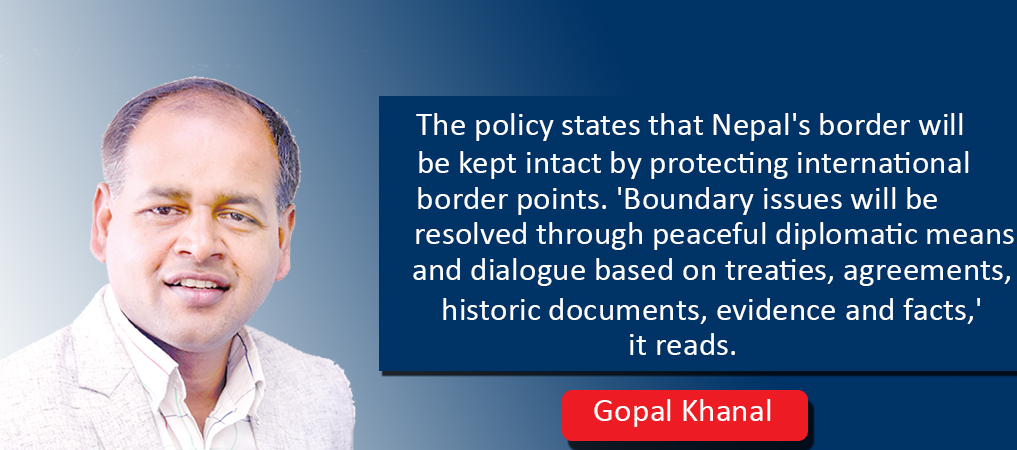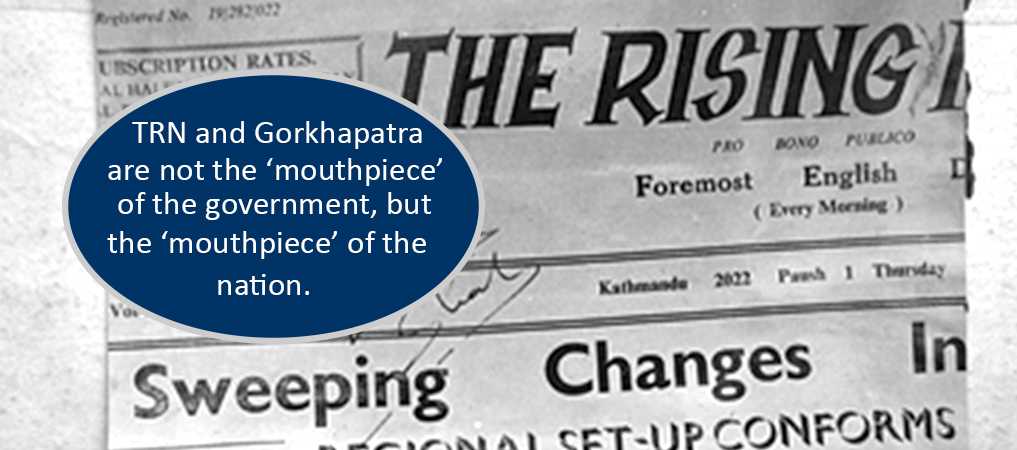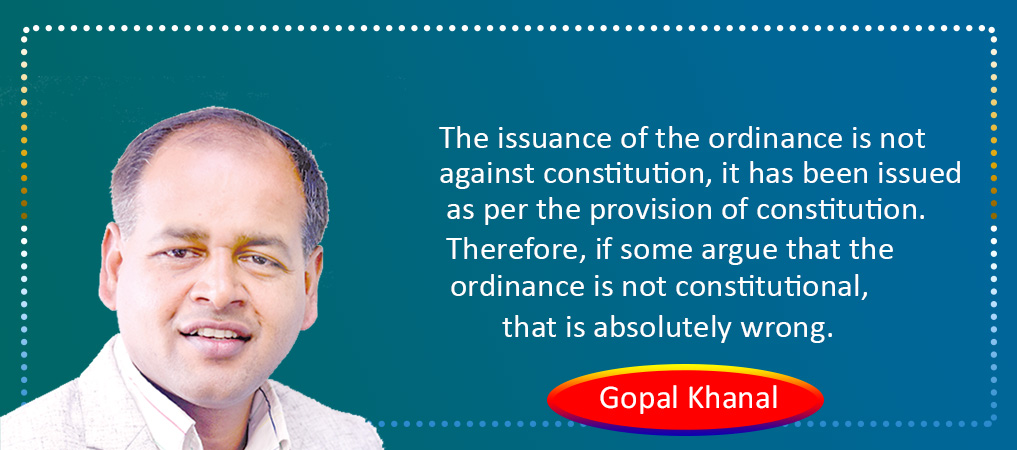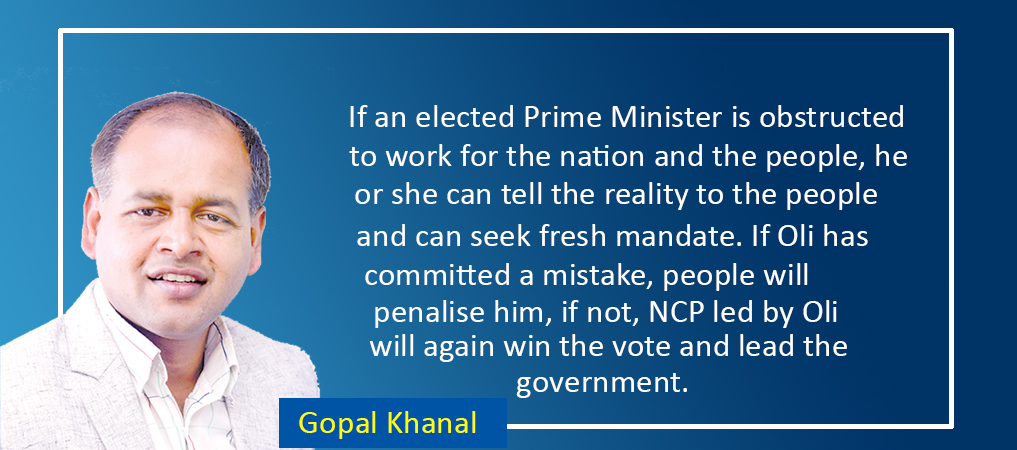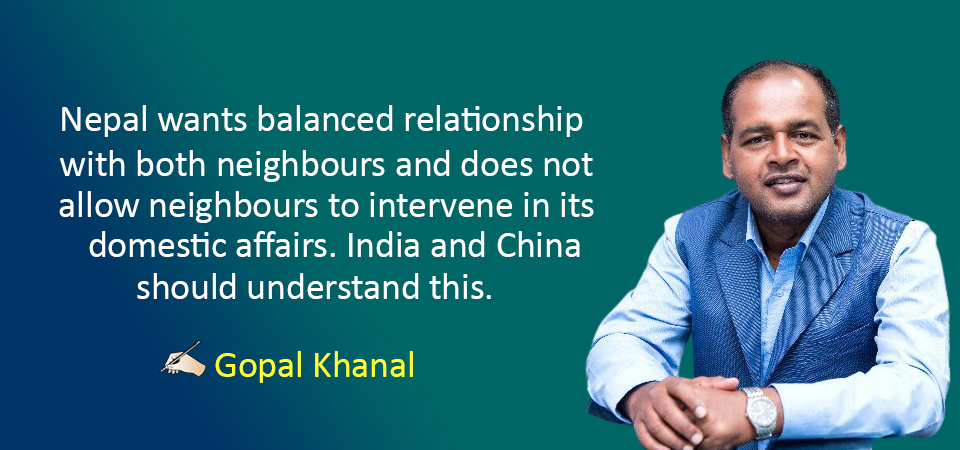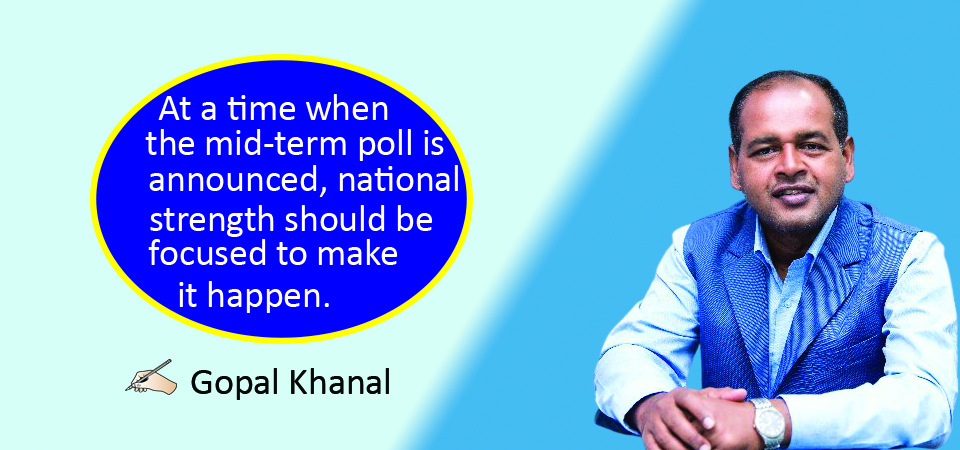Oli's Enhanced Stature
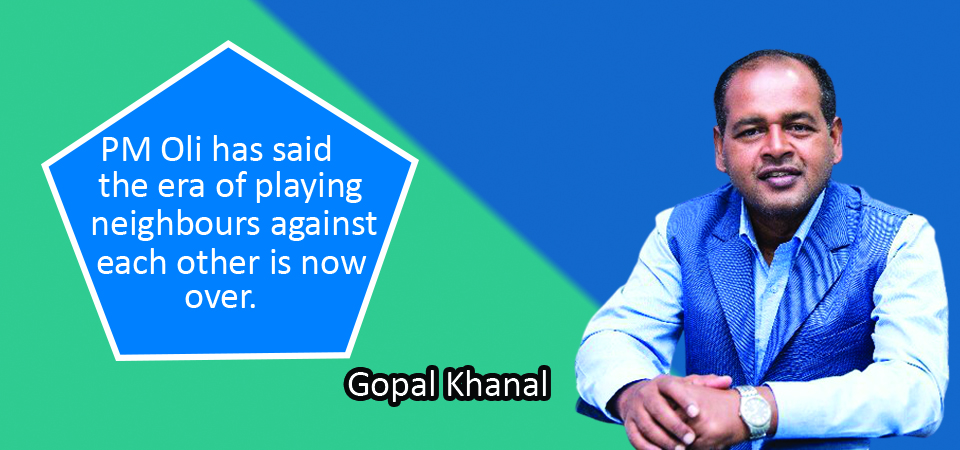
Gopal Khanal
Prime Minister KP Sharma Oli's interviews to two Indian television channels – Zee News (Hindi) and WION (English), aired on January 11, -- have been widely applauded by Nepali people. A few analysts have said that despite their disagreements with Oli on various domestic issues, Oli's style of expression, rich knowledge of history and eastern civilisations and confidence to deal with India on equal footing was highly praiseworthy.
But, there are no dearth of fault-finders, whose sole objective is to denigrate Oli, regardless of his deeds and actions. His own former colleagues Pushpa Kamal Dahal Prachanda and Madhav Kumar Nepal, who are leading a faction of ruling Nepal Communist Party (NCP), are on the frontline to slam him.
The leaders of the Prachanda-Nepal camp have either kept mum or commented negatively on the much-talked about interviews as they have indulged in the politics of negation, protesting Oli in all circumstances. Prachanda and Nepal consider that if Prime Minister Oli does something better for the Nepali people and the nation, they should loudly protest so as to dampen his popularity. They think Oli's popularity will pose threat to their politics. When you find no fault to criticise, you get involved in spinning fake stories.
Be sure that neither the interview was sponsored nor was it cosmetic. It was an interview of Nepal's such Prime Minister, who had proved his mettle by walking the talk. These interviews have once again restored the manifested truth and heightened Prime Minister Oli's stature. All his opponents appear to be Lilliputians before him.
Sovereign equality
It is not necessary to pinpoint the highlights of the interviews as they are full of punch-lines and present Nepal's rising power and consolidated strength but this can broadly be summarised into four themes.
The first is the principle of sovereign equality. Prime Minister Oli propounded this policy to especially deal with the neighbourhood and powerful nations. China and India are bigger than Nepal but their sovereignty cannot be bigger since sovereignty does not lie in geography and power. With the execution of this theory, Nepal has reminded both China and India to respect sovereignty, territorial integrity and independence of Nepal. “We want to remove all kinds of inferiority complex from our Nepali people and want our neighbours not to have any superiority complex,” he said.
The second is Nepal cannot play card against its neighbours. PM Oli has said the era of playing neighbours against each other is now over. This is not the time of using China against India and India against China. Nepal can only play the collective card of development. Since the card politics is obsolete, PM Oli has been inviting both the neighbours and whole world to invest in Nepal assuring the guaranteed return. Oli has dealt with the issues protecting national interest irrespective of the country's size and their global power. He said, “We talk with India and China in the same way, talking with everyone in the same language works.” He has seen enormous opportunities for Nepal geopolitically since both the neighbours are rising power and fast growing economies.
The third is orientalism in view of evolving Asian Century. Prime Minister Oli has demonstrated his depth and sound knowledge of orientalism, eastern norms and values. Recollecting the vast knowledge of the eastern civilisations, the Prime Minister has said Nepalis should feel proud of their rich history, guiding principles and philosophy.
As the 21stcentury is becoming Asian century, India and China should maintain friendly relations upholding peace and tranquillity along their border, Nepal has nothing to do with the fierce and violent face-off in the Galwan Valley along LAC. As a nation employing neutrality in foreign policy, Nepal can play the role of mediator between China and India if it is needed. PM Oli can mediate between President Xi Jinping of China and Prime Minister Narendra Modi of India under the banner of 'Kathmandu Mediation'.
The fourth is Nepal-India relation will be hassle-free by the end of 2021. It means Nepal will bring back its territories of Limpiyadhura, Kalapani and Lipulek by that time and normal relations will be restored. Coincidently, PM’s interview has come in such a time when Nepal's Foreign Affairs Minister Pradeep Kumar Gyawali is visiting India from Thursday (14-16 January) for the sixth Meeting of Nepal-India Joint Commission.
This is the first delegation from Nepal following the soured relations resulting from the cartographic aggression on boundary issue and this follows the visit of high-level delegations from India. The highest level mechanism between Nepal-India is the Joint Commission and this is the sixth Meeting, which will discuss the whole gamut of Nepal-India bilateral relations, including trade, transit, energy, boundary, COVID-19 cooperation, infrastructure, connectivity, investment, agriculture, tourism and culture, among others, according to MoFA.
Boundary in agenda
The major issue this time is the issue of boundary - that is the issue of Nepali land- Limpiyadhura, Lipulek and Kalapani, for which Nepal will put forth the evidences to claim. PM Oli said that Kalapani, Limpiyadhura and Lipulek are integral part of Nepal. For 146 years that area was under Nepal’s control but the territory was not in our use after 1962. “We are not in a position to claim territories of India and China but Nepal will try to solve this dispute through diplomatic talks,” the PM said in interviews.
The boundary issue cannot be resolved in one sitting, but it might open the formal and permanent channel so that rounds of discussions will he held. Since Minister Gyawali is representing Nepali sentiments, this will set a new journey in the bilateral relations between the two nations.
(Khanal is consulting editor at Gorkhapatra Corporation. khanalbro@gmail.com)
Recent News

Do not make expressions casting dout on election: EC
14 Apr, 2022
CM Bhatta says may New Year 2079 BS inspire positive thinking
14 Apr, 2022
Three new cases, 44 recoveries in 24 hours
14 Apr, 2022
689 climbers of 84 teams so far acquire permits for climbing various peaks this spring season
14 Apr, 2022
How the rising cost of living crisis is impacting Nepal
14 Apr, 2022
US military confirms an interstellar meteor collided with Earth
14 Apr, 2022
Valneva Covid vaccine approved for use in UK
14 Apr, 2022
Chair Prachanda highlights need of unity among Maoist, Communist forces
14 Apr, 2022
Ranbir Kapoor and Alia Bhatt: Bollywood toasts star couple on wedding
14 Apr, 2022
President Bhandari confers decorations (Photo Feature)
14 Apr, 2022



